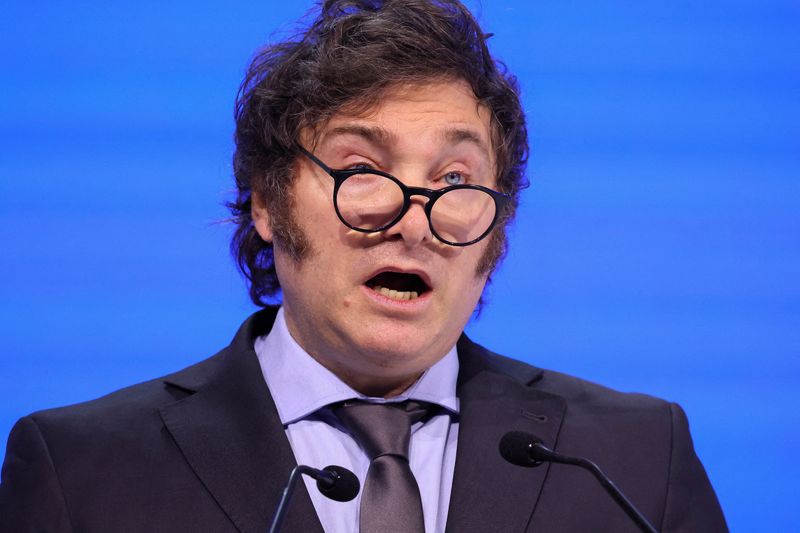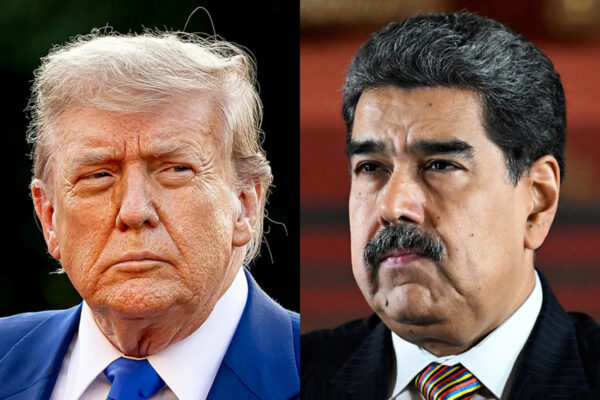‘No obstacle’ to Argentina mega reform bill in Congress, government says
© Reuters. FILE PHOTO: Argentina’s President Javier Milei speaks, during the 54th annual meeting of the World Economic Forum, in Davos, Switzerland, January 17, 2024. REUTERS/Denis Balibouse By Walter Bianchi
BUENOS AIRES (Reuters) – Argentina’s government said on Tuesday that it was confident its sprawling economic reform bill, known as the “omnibus bill”, would gain approval in Congress after it made concessions removing some divisive sections from the legislation.
The bill is a central plank in libertarian President Javier Milei’s aims to overhaul the South American country’s economy that is buckling under high debt loads, inflation running at over 200% and myriad capital controls to protect the peso.
“There should now be no obstacle for the law to be approved,” presidential spokesman Manuel Adorni said in a daily press conference on Tuesday. “As we understand it is going to get approved, with the first half of that this week.”
Milei took office in December after a divisive campaign in which he pledged a “chainsaw” plan to slash back the size of the state and cut spending with an austerity drive he argues is necessary to put the country’s finances back on a firm footing.
That has gone down well with markets and investors, including major creditor the International Monetary Fund (IMF), though he has warned of tough months ahead for regular Argentines with a likely economic contraction this year.
The omnibus bill – a major part of Milei’s reform plan – is expected to be debated in the lower house of Congress on Wednesday after the government yanked the key fiscal section following opposition to tax hikes and pension reforms.
While marking a significant concession by the government — which still intends to push those fiscal plans separately — the move was seen as likely to help avoid the bill failing in Congress where Milei only has minority support.
That helped the S&P Merval stock index edge up 1% on Tuesday, with sovereign bonds very slightly up on average.
The government still faces a major challenge to meet pledges for a zero deficit this year, while turning around an expected economic contraction estimated by the IMF at 2.8%.
“As soon as reality and the situation allows it, of course we are going to reverse this drop,” Adorni added.
In popular parallel currency markets, used to get around strict capital controls and where people pay a large premium for dollars, the exchange rate was over 1,200 pesos per dollar on Tuesday, well away from the 826 peso controlled official rate.
In futures markets dollars were trading at 1,273 pesos by the end of June, reflecting expectations of a sharp slide.












 Bitcoin
Bitcoin  Ethereum
Ethereum  Tether
Tether  XRP
XRP  USDC
USDC  Solana
Solana  TRON
TRON  Dogecoin
Dogecoin  Lido Staked Ether
Lido Staked Ether